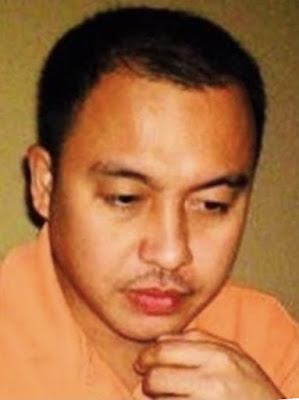“To me, the Internet is a big scam.”
-Ry Cooder
By Alex P. Vidal
IN 2016, I decided to close my Bank of America (BofA) checking account I opened in Culvert City, California in 2007 after being hit three times by online scam since I relocated in New York City a year earlier.
I tried to close my other business account I opened in Lake Forest, California in 2015 with the same bank, but the management in the Jackson Heights, Queens branch prevailed upon me to keep it.
After retaining the business account, I was hit by online scam once more in 2018.
Enough is enough. I kept the account and endured the $16 monthly fee (Philippine P800) but maintained only a certain amount enough to pay my basic bills.
For a while everything was fine. The pandemic lockdown came in March 2020 and the account suffered from famine when the economy nosedived for a few months.
When New York bounced back from the state of financial comatose due to the pandemic-induced lockdowns, the BofA business account rose from death throes and was never closed despite being dormant.
-o0o-
At 7:30 in the evening September 25, a text message popped up on my phone.
It read: “Bank of America Security: Did you use your debit card ending in 9833 at: VITAVIX KETO, $89.99, Declined, 09/25? If you recognize this activity, reply YES. If not, reply NO. STOP to end texts.”
I didn’t authorize an $89.99 transfer through online so I typed ‘NO.’
Then another text message came: “Your card ending in 9833 is restricted. Call 844.585.0485 or go to Online Banking to prevent further unauthorized activity.”
I got scared by the words “…to prevent further unauthorized activity.”
When I checked online, another unauthorized activity has just commenced: “CHECKCARD 09/25 8669911616VERACLEANSE 866-9911616 CA -$14.95.”
The electronic robbery was unfolding.
I immediately followed the BofA online instructions on how to stop the ongoing illegal activity and, thus, averted a massive hemorrhage that would have not only drained my account but also possibly further impaired it with a negative balance that might reach to hundreds if not thousands of dollars if not halted right away.
-o0o-
I learned later that a scam spreading across the United States has been targeting Bank of America customers, tricking them into sending money to fraudsters through the popular Zelle payment app, among other schemes.
The scam has been reported far and wide by thousands of victims across the United States.
Bank of America was reportedly now warning customers as many scammers are posing as BofA representatives helping them "avoid a hack in their account."
ABC13 has reported that in San Francisco, California a school nurse identified as Page Pollack was among the latest to fall victim, just as she was working to get students safely back to school amid the threat of COVID-19.
Pollack lost $3,500 from con artists who hacked his BofA account.
“With the pandemic and kids coming back to school, yeah it's crazy,'' said Page Pollack, the nurse for the San Carlos School District. "I have eight schools and I am the only nurse. So it's a pretty big job."
Immersed in the task of getting schools open with ever-changing pandemic conditions, the last thing she expected was to be blindsided by a con artist, reported the ABC13.
"$3,500 is a lot of money to me,'' Pollack told ABC13 sister station KGO-TV. "School nurses don't make a ton of money."
-o0o-
Through the help of KGO-TV, however, Pollack was able to get back her money after BofA denied her claim.
In denying her claim, the bank's notice reportedly read: "Page, unfortunately, we're unable to approve your recent claim...we didn't receive approval from the payee to reverse the $3,500 transferred into your account."
The bank reportedly added, "We recommend you contact the person you sent the funds to directly for further assistance."
BofA reportedly reversed its verdict after being informed by the TV network that this was a fraud, not a legitimate transaction.
“I said, 'So that means I get my money back?' She says, 'Yes.' So I just started crying," Pollack told KGO-TV. "I am just beyond grateful, beyond appreciative. And I thank you from the bottom of my heart."
On September 27, I will go to the BofA to make a claim of my $104.94 because I am a victim of a fraudulent transaction.
(The author, who is now based in New York City, used to be the editor of two dailies in Iloilo)

I do not trust bank calls right away. I observe what he is trying to know and if i find it suspicious i make excuses to call me later i am busy him . And i rush call the bank and credit company about the matters. I also do not participate in any networking type of transaction or business. .I do not post my exact birth date in social media. Thanks sir Alex you are okay now.
ReplyDeleteBanks usually don’t call. They message through your verified account. Go for it. Small or big amount is still money.
ReplyDelete